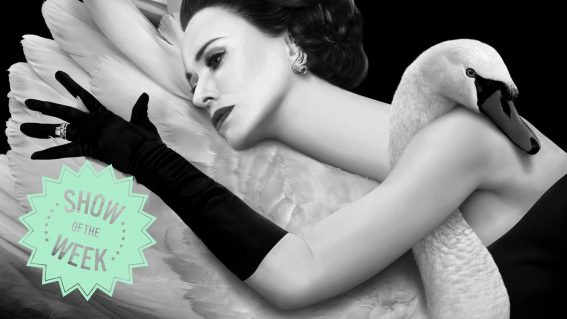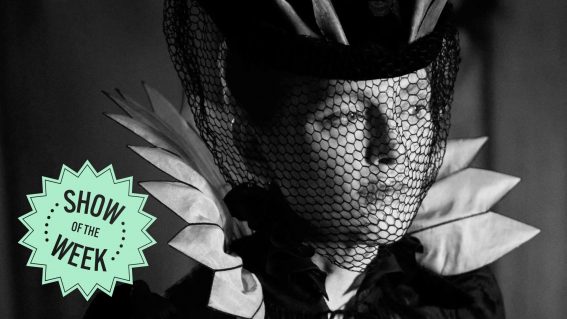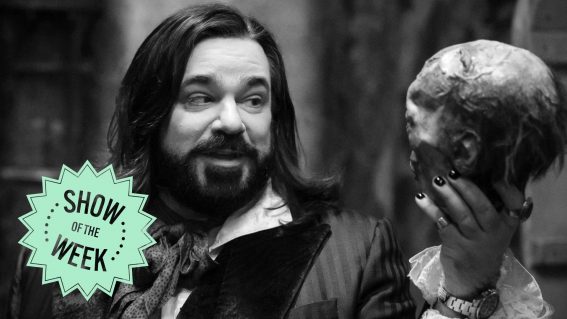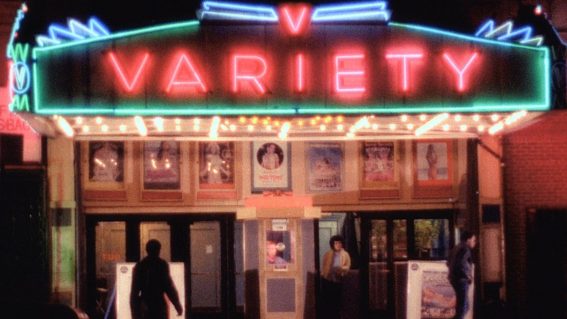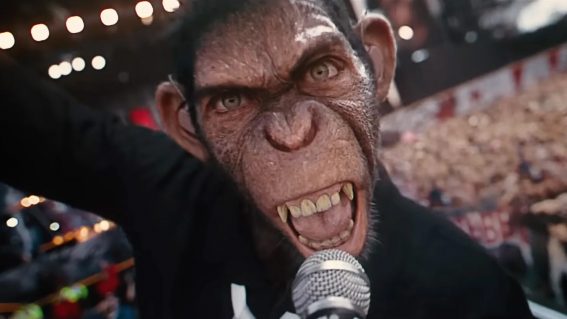Sweetpea has some real fun wading through moral grey areas… and murder
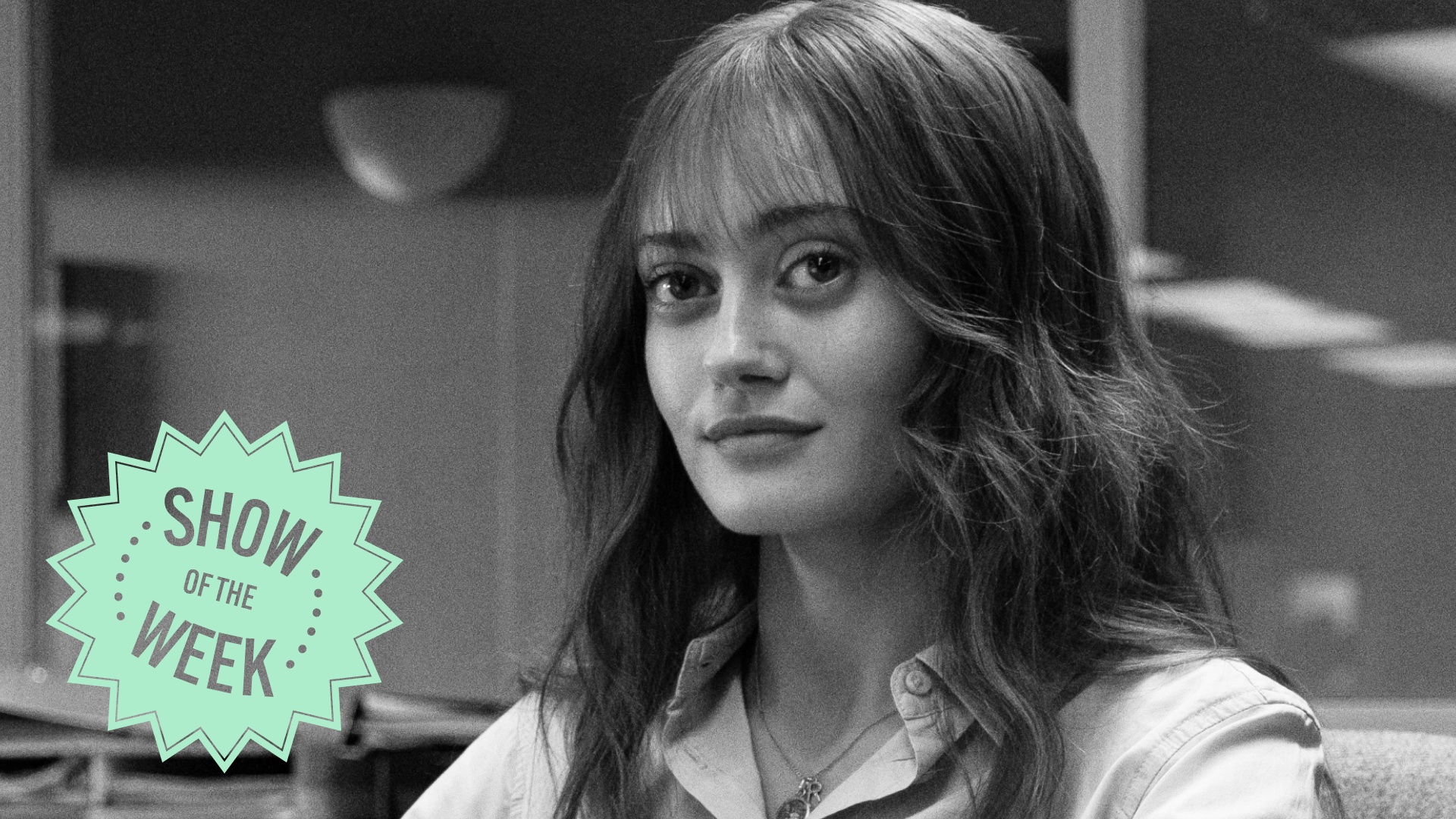
Clarisse Loughrey’s Show of the Week column, published every Friday, spotlights a new show to watch or skip. This week: The lines between the bully and the bullied get blurry in Sweetpea.
Rhiannon (Ella Purnell) has a long list of people she’d like to kill: manspreaders, chauvinistic bosses, co-workers with no spatial awareness, sexual partners who only reply in emojis. It’s scarily easy in the modern world for someone’s default emotion to be murderous rage. People seem to be growing crueller and more callous by the day. Kirstie Swain’s Sweetpea, adapted from CJ Skuse’s book of the same name, is a darkly addictive take on that frustration, of life lived under the rule of bullies.
Here, the wallflower finally takes bloody vengeance. Rhiannon has lived her entire life in the shadows, ridiculed at school by Julia (Nicôle Lecky), who didn’t even then have the decency to peak in secondary school, but instead gets to enjoy a picture-perfect life as successful real estate agent with a fiancé (Dino Kelly) on her arm. Rhiannon developed tricholotomania in response, a disorder which cause compulsive hair-pulling, so extreme at one point that she was forced to wear a wig in order to conceal her bald patches.
As an adult, she’s now treated to the pleasure of being the invisible woman in an office full of cocksure newspapermen. What a joy. She’s employed as the receptionist at the local gazette, whose editor (Jeremy Swift) is so brazenly dismissive that, when she applies for a junior reporter role, he instead hands it off to nepo baby AJ (Calam Lynch). Her dad (David Bark-Jones) just died. Her sister (Alexandra Dowling) wants to sell the house she still lives in. It only takes one more misfortune for Rhiannon to turn fully homicidal.
It’s really a sort of metaphorical release. So, it’s oddly relatable. Rhiannon’s killing spree is the fancifully extreme stand-in for life’s doormats pushing back, finally risking the perception they’re a little rude or curt so they can take up the space they’ve worked hard to claim and set their own boundaries. But, if you follow that idea through to where Sweetpea ends its six-episode run (and it’s an open-ended one, presumably with the confidence a series two is somewhere around the corner), it becomes a little more complicated than straightforward self-empowerment.
As Rhiannon’s confidence blossoms—on top of the bloodshed, she learns to creep out the manspreaders and use Mr. Emoji Texts for her own personal sexual satisfaction—it becomes increasingly clear how blurred the lines between the bully and the bullied can be. Often, people are both. Or they can use their victimhood as a convenient excuse for their harmful actions. The police officer (Leah Harvey) on Rhiannon’s trail may have the power and authority to stop her, but she also can’t help but be reminded of how much she shares in common with her number one suspect. She, too, even in such privileged halls, is regularly ignored and belittled at work.
Rhiannon is desperate to apply her binary worldview, to argue that her victims really “deserved to die”, and shrug away all the contradictions and complications. Swain’s series has some real fun wading through that moral grey area. And, Purnell, who played a very different kind of innocent exposed to a deeply compromised society in dystopian video game adaptation Fallout, seems to excel in these kinds of internal conflicts. She plays fractured delusion with a real subtlety. Maybe this could be her new creative groove. The actor, with those wide, baby deer eyes, is helping us process how confusing it is to be alive right now.


